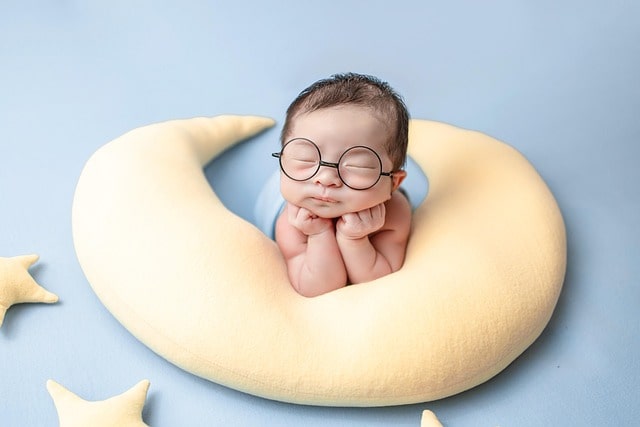Sleep is a fundamental aspect of our overall health, impacting everything from our physical well-being to our mental clarity. One of the most critical yet often overlooked connections is the relationship between sleep and vision. Understanding how these two elements intersect can help you appreciate the importance of good sleep hygiene for maintaining optimal eye health and vision. In this blog, we’ll explore how sleep affects vision, the impact of sleep disorders on eye health, and tips for promoting better sleep for healthier eyes.
1. The Importance of Sleep for Eye Health

a. Restoration and Repair
During sleep, our body undergoes vital restorative processes. This includes the eyes, which require time to recuperate from the day’s activities. Here’s how sleep contributes to eye health:
- Cell Repair: Sleep allows for the repair of damaged cells in the eyes, including those in the cornea and retina. This repair process is essential for maintaining healthy vision.
- Nutrient Distribution: The eyes require various nutrients to function properly. Sleep facilitates the efficient distribution of these nutrients throughout the body, including the eyes.
b. Tear Production
Adequate sleep is crucial for the production of tears. The tear film is essential for keeping the eyes moist and preventing dryness. Insufficient sleep can lead to a decrease in tear production, resulting in dry eye symptoms, discomfort, and even vision problems.
2. The Impact of Sleep Disorders on Vision
a. Sleep Apnea
Obstructive sleep apnea (OSA) is a condition where breathing repeatedly stops and starts during sleep. This can lead to significant drops in oxygen levels, affecting various organs, including the eyes. Individuals with sleep apnea may experience:
- Increased Risk of Eye Conditions: Research has shown a correlation between sleep apnea and an increased risk of glaucoma, diabetic retinopathy, and other eye diseases.
- Vision Problems: The intermittent lack of oxygen can lead to problems such as blurred vision or temporary vision loss.
b. Insomnia
Chronic insomnia can affect visual performance and increase the risk of accidents due to impaired focus and attention. Some studies suggest that insufficient sleep may lead to:
- Visual Disturbances: Sleep deprivation can cause visual disturbances such as double vision or difficulty focusing.
- Reduced Contrast Sensitivity: Lack of sleep can impair contrast sensitivity, making it harder to see objects against backgrounds, which is especially crucial for driving or night-time activities.
c. Other Sleep Disorders
Other sleep disorders, such as restless leg syndrome or narcolepsy, can also indirectly impact vision by causing fatigue, difficulty concentrating, and increased eye strain.
3. The Connection Between Eye Movements and Sleep
a. Rapid Eye Movement (REM) Sleep
During REM sleep, the eyes move rapidly under closed eyelids, and this stage of sleep is associated with vivid dreaming. This phase is crucial for mental health, learning, and memory consolidation. Interestingly, the rapid eye movements during REM sleep are thought to be linked to visual processing and could play a role in maintaining healthy vision.
b. Sleep and Visual Processing
Research suggests that sleep plays a role in visual processing and memory. During sleep, especially during REM, the brain processes and organizes visual information encountered throughout the day. This consolidation can improve visual perception and the ability to recognize patterns, ultimately benefiting tasks that require sharp vision.
4. Tips for Improving Sleep to Enhance Vision
Maintaining a good sleep routine can significantly benefit your eye health and overall well-being. Here are some practical tips:
a. Establish a Sleep Schedule
- Aim for 7-9 hours of sleep per night and try to go to bed and wake up at the same time each day, even on weekends.
b. Create a Relaxing Bedtime Routine
- Engage in calming activities before bed, such as reading, meditation, or gentle stretching, to signal to your body that it’s time to wind down.
c. Limit Screen Time Before Bed
- The blue light emitted by screens can interfere with your sleep cycle. Try to avoid screens for at least an hour before bedtime.
d. Maintain a Comfortable Sleep Environment
- Ensure your bedroom is dark, quiet, and cool. Consider blackout curtains, eye masks, or white noise machines if necessary.
e. Stay Active During the Day
- Regular physical activity can help improve sleep quality. Aim for at least 30 minutes of moderate exercise most days.
5. Conclusion
The intersection of sleep and vision highlights the importance of prioritizing restful sleep for maintaining healthy eyes and optimal vision. The restorative processes that occur during sleep play a critical role in repairing and nourishing the eyes. Conversely, sleep disorders can lead to various vision problems and increase the risk of eye diseases. By adopting healthy sleep habits, you can support your eye health and overall well-being, ensuring that your vision remains sharp and clear for years to come. Prioritize your sleep—it’s essential for both your mind and your eyes!
Make your appointment today
To make your appointment, simply give us a call (760)-948-3345 or
or
At Golden Eye Optometry, we view good vision care as front line protection at every age. A routine eye exam can detect more than poor vision. It can shed early light on glaucoma, macular degeneration, cataracts and diabetes.
Information received through Golden Eye Optometry social media channels is for informational purposes only and does not constitute medical advice, medical recommendations, diagnosis, or treatment. Always seek the advice of your eye doctor, physician, or other qualified health provider with any questions you may have regarding a medical condition.